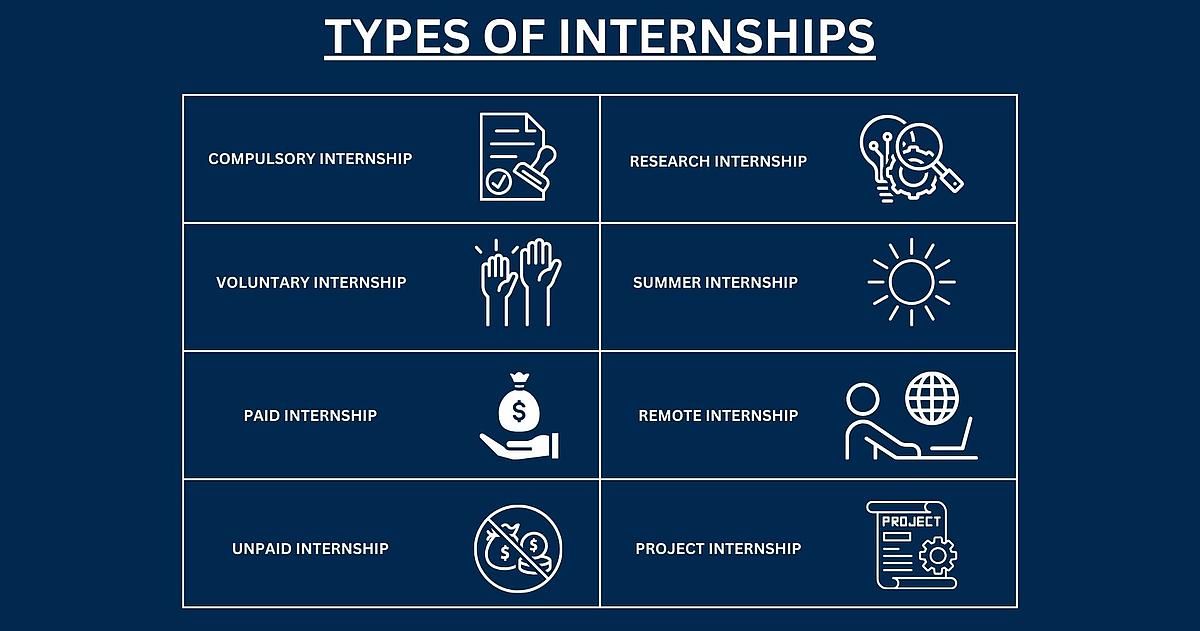This Website uses cookies to improve your visit on our website. More Info
Internship Abroad: What's really important!
An Internship Abroad not only offers the unique opportunity to gain professional experience in an international environment, but also opens the door to new cultures, languages and ways of working. It is an opportunity to leave your comfort zone, develop both personally and professionally, and build a global network. But how do you find the right internship abroad, what preparations are necessary, and what do you need to bear in mind? Here is an overview of the most important information to get the most out of an Internship Abroad.
Why do an Internship Abroad?
An Internship Abroad offers numerous benefits and can be a formative element in personal and professional development. It enables the acquisition and improvement of language skills through daily use in an authentic environment. Internship Abroad also gives you an insight into international working cultures and practices, which strengthens your intercultural competence. The experience gained during an Internship Abroad can improve adaptability and problem-solving skills in unfamiliar situations.
Professionally, an Internship Abroad opens up the opportunity to build a global network, which can be valuable for future career opportunities. Internship Abroad also offers the chance to prove yourself in an international environment and can increase employability by gaining unique skills and experiences that are highly sought after by employers.
On a personal level, an Internship Abroad promotes independence and self-confidence by learning how to navigate new and challenging situations. This Internship Abroad experience can also broaden your personal worldview and lead to a more open attitude towards other cultures and ways of life.
In short, an Internship Abroad is an investment in one's future that enriches both personal and professional development in many ways.
Internship Abroad: Advantages and Disadvantages
This overview provides a comprehensive look at the possible positive and negative aspects of an Internship Abroad. These are the advantages and disadvantages of an Internship Abroad summarized:
| Advantages | Disadvantages |
|---|---|
| Improvement of language skills | Possible high costs for travel and living expenses |
| Insights into international work cultures | Challenges in adapting to a new culture |
| Acquisition of intercultural skills | Potential homesickness and social isolation |
| Building a global network | Complicated visa and travel arrangements |
| Promotion of independence and self-confidence | Unpaid or low-paid internships |
| Expanding personal world view | Interrupting regular study or work life |
| Increase employability through unique experiences | Risk of internship not being recognized at home |
Requirements for an Internship Abroad
Internship Abroad requirements can vary depending on the destination, industry and specific program, but there are some general requirements and factors that are often considered:
- Language skills: Many internships abroad require a basic knowledge of the language of the host country, often a certain level is required according to the Common European Framework of Reference for Languages (CEFR). However, if this is not the case, at least a good knowledge of English is required.
- Academic background and academic achievements: Many programs require a certain level of academic standing, such as a current study or degree in a relevant field, as well as good grades.
- Work experience and skills: Previous internships (including internships abroad) or work experience in the desired industry may be required, as well as specific skills relevant to the internship.
- Visa and work permit: The legal requirements for working in another country must be met, which often means that you will need an appropriate visa or work permit.
- Insurance: Valid health and liability insurance that offers international protection is often a prerequisite.
- Letter of motivation and CV: Application documents must often be submitted in English or the language of the host country and should clearly state the motivation and suitability for the Internship Abroad.
- Financial means: Proof of sufficient financial means to cover living expenses in the host country may be required, especially if the Internship Abroad is unpaid.
- Adaptability and openness: Personal qualities such as flexibility, adaptability and a willingness to adapt to a new culture are essential for a successful internship Abroad.
It is important to inform yourself early on and prepare for the specific requirements of the desired Internship Abroad and country in order to increase your chances of applying.
If you are looking for alternatives to an Internship Abroad, then take a look at our pages on Language Trip, Semester Abroad and the more general overview page on Staying abroad.
To the Overview Page of the GuideProcedure for an Internship Abroad
An Internship Abroad is an excellent opportunity to develop professional and personal skills, gain intercultural competence and build an international network. The keys to success are thorough preparation, openness to new experiences and proactive engagement in the host country. Completing an Internship Abroad therefore requires careful planning and preparation for the entire process. Here are the basic steps that are generally followed:

Research and selection
- Define your objectives: Think about what you want to achieve with the Internship Abroad, what skills you want to acquire or improve and which country or sector you want to gain experience in.
- Research options: Search for available internships abroad that match your interests and goals. Use online platforms, university career centers and professional networks.
Application process
- Prepare application documents: Create an up-to-date CV and a convincing cover letter. In some cases, letters of recommendation or a portfolio may also be required.
- Submit application: Apply for the selected internships abroad according to the organization's requirements. Pay attention to deadlines and required application formats.
Clarify formalities
- Visa and work permit: Find out about the visa requirements of the host country and submit an application if necessary.
- Insurance: Make sure you have sufficient health, accident and liability insurance for your internship Abroad.
- Financial planning: Plan your budget, including accommodation, food, travel costs and other expenses for the internship Abroad.
Preparation for the Internship Abroad
- Improve your language skills: If necessary, attend a language course to improve your knowledge of the host country's language for the Internship Abroad.
- Cultural preparation: Find out about the culture, etiquette and working habits of the host country to ensure a smooth transition.
During the Internship Abroad
- Integration into the work environment: Be open and willing to learn new things and adapt to the host country's work culture.
- Networking: Take the opportunity during your Internship Abroad to make professional contacts and expand your professional network internationally.
After the Internship Abroad
- Feedback and certificates: Ask for a final interview and, if necessary, an internship certificate or letter of recommendation.
- Reflection and documentation: Reflect on your experience and document the skills you learned and goals you achieved during your Internship Abroad for your CV and future applications.

Difference
Internship Abroad vs Domestic Internship

Is an Internship Abroad better than a domestic internship?
| Aspect | Internship Abroad | Domestic Internship |
|---|---|---|
| Language skills and communication | Work often in foreign language, improvement of language skills and multicultural communication | Work in native language, focus on subject-specific communication |
| Cultural experience | Deep insights into another culture and promotion of intercultural skills | Familiarity with own culture, fewer cultural challenges |
| Adaptability | Strengthening flexibility and adaptability through new environments | Less adaptation to new environments required |
| Professional networks | Building international professional networks | Building professional networks at home |
| Employability | Increasing employability through international experience | Valuable professional experience, but without international component |
| Costs and logistics | Higher costs for travel, accommodation and living expenses; more extensive preparations required | Lower costs and logistical effort |
| Legal and administrative differences | Varying recognition of internships, visa requirements and employment rights | Clearly defined legal and administrative framework |
| Personal growth | Significant personal growth, increased self-confidence and independence | Professional and personal development, but with fewer challenges compared to abroad |
This is a table that illustrates the differences between an Internship Abroad and a domestic internship. This overview helps to understand the specific characteristics and possible effects of an internship abroad compared to one at home.
Internship Abroad: Costs and Financing
The cost of an Internship Abroad can vary depending on the country, duration of the internship and lifestyle. Here are some typical cost points, as well as options for financing:

Travel costs
- Travel costs: Flight tickets, local transportation.
- Visa and processing fees: For applying for required visas and administrative fees that may apply.
- Accommodation: Rent for accommodation, utilities.
- Living expenses: Food, clothing, leisure activities.
- Insurance: Health insurance, liability insurance, travel insurance.
- Tuition fees: If the Internship Abroad is part of an academic program.
- Language courses: If necessary to improve language skills prior to the Internship Abroad.
Funding
- Scholarships and funding programs: Many organizations, foundations and educational institutions offer special scholarships for internships abroad. Examples include the ERASMUS+ program in Europe or DAAD scholarships in Germany.
- Financial support from the college or university: Some educational institutions offer financial support or scholarships for students completing an Internship Abroad.
- Employer funding: Some companies offer interns remuneration, travel allowances or accommodation as part of the Internship Abroad.
- Crowdfunding and sponsorship: Crowdfunding platforms can be used to raise funds from family, friends and other supporters.
- Part-time jobs and savings: Money saved before the internship or a part-time job abroad (if allowed by law) can help cover costs.
- State funding: In some countries, there are state programs that provide financial support for internships abroad, e.g. through Auslands-BAföG in Germany.
It is important to take care of funding early on and explore all available options. Thorough budget planning before departure will help to avoid unexpected expenses and ensure that the Internship Abroad will be both an enriching and financially sustainable experience.
Possible Internship Abroad types for your Internship Abroad
An Internship Abroad is an excellent opportunity to develop professional and personal skills, gain intercultural competence and build an international network. The keys to success are thorough preparation, openness to new experiences and proactive engagement in the host country. Here are some different types of internships you can choose from when approaching an Internship Abroad.
Overview of different Types of Internships
The following graphic provides a brief overview of the main types of internships that are also possible as Internship Abroad.

The Types of Internship explained in more Detail
Internships can be divided into different categories depending on factors such as duration, pay, academic affiliation and the specific aim of the internship. Here are some of the common internship types, some of which are particularly suitable for an Internship Abroad:
Compulsory Internship
- Description: Part of the study or training regulations, often required for graduation.
- Suitability for Internship Abroad: Very suitable as it offers the opportunity to gain international experience while fulfilling study requirements.
Voluntary Internship
- Description: Not prescribed by the apprenticeship, completed out of personal interest for professional orientation or further training.
- Suitability for Internship Abroad: Ideal for gaining international work experience and exploring personal interests.
Paid Internship
- Description: Interns receive remuneration for their work.
- Suitability for Internship Abroad: Attractive for internships abroad as the payment can help cover living costs in the host country.
Unpaid Internship
- Description: No financial remuneration; the focus is on learning experiences.
- Suitability for Internship Abroad: Can be a valuable experience, but requires good financial planning with regard to the costs of living abroad.
Research Internship
- Description: Internships that are carried out in research institutions or as part of research projects.
- Suitability for Internship Abroad: Particularly suitable for students and alumni of natural sciences, engineering or medicine who would like to gain international research experience.
Summer Internship
- Description: Usually takes place in the summer months, often between two academic years.
- Suitability for Internship Abroad: Popular for short internships abroad to gain initial international experience.
Remote Internship
- Description: Work is done remotely, usually online.
- Suitability for Internship Abroad: Offers flexibility and the opportunity to work for international companies without changing countries. Ideal for the current global working environment.
Project Internship
- Description: Focuses on a specific project within a company or organization.
- Suitability for Internship Abroad: Good opportunity to work on significant international projects and develop specific skills.
Best industries for an Internship Abroad
The best industries to work in for an Internship Abroad depend on your personal goals, interests and desired career direction. The choice should be based on your own career goals, interests and desired experience. It is also important to consider the language requirements and career prospects in the respective countries. However, some industries offer particularly good opportunities and advantages for international internships abroad:
| International Relations and Development | This track offers insights into global processes and is ideal for those interested in diplomacy, international cooperation and development aid. |
|---|---|
| Healthcare | Healthcare internships abroad, especially in developing and emerging countries, can provide valuable experience of different healthcare systems and challenges. |
| Technology and IT | The tech industry is highly interconnected globally. Internships abroad in this field can provide access to the latest technologies and working methods and are in demand everywhere. |
| Marketing and Communications | This industry benefits greatly from intercultural skills, as understanding different markets and cultures is essential for success. |
| Tourism and Hospitality | Internships abroad in tourism and hospitality offer the opportunity to work in a globally oriented industry where customer service and intercultural communication are key. |
| Finance and Consulting | Insights into international financial markets and business practices are particularly valuable and offer excellent career opportunities. |
| Engineering and Construction | These industries offer the opportunity to work on large international projects and develop technical and project-related skills in an international context. |
| Arts and Culture | Internships abroad in the arts and culture sector, including museums, galleries and theaters, offer the opportunity to experience and understand cultural differences in the art world. |
| Environmental and Sustainability Projects | Internships abroad in this area provide insight into global environmental issues and the opportunity to work on projects with a sustainable impact. |
TOP 9 Countries for an Internship Abroad
The best countries for an Internship Abroad vary according to subject area, language skills and personal interests. However, some countries offer particularly good conditions due to their economic strength, cultural diversity and educational opportunities:
Germany
Known for its leading role in engineering, the automotive industry and renewable energies. Germany also offers excellent internship opportunities in the field of research and development.
USA
With one of the largest economies in the world, the USA is a hotspot for internships abroad in almost every industry, especially in technology, finance and marketing.
United Kingdom
Offers a wide range of internship opportunities abroad, particularly in the fields of finance, media, art and fashion.
Australia
Attractive for internships abroad in the fields of environmental sciences, tourism and hospitality, as well as for its strong research landscape.
Canada
Offers excellent internship opportunities abroad, especially in the fields of technology, environmental protection and healthcare.
Singapore
A leading financial and commercial center in Asia, ideal for internships abroad in business, finance and technology.
Japan
Offers unique internship experiences abroad in technology, engineering, traditional and cultural fields.
China
As one of the largest economies in the world, China offers internship opportunities in business, technology and language studies.
Spain
Popular for internships abroad in tourism, hospitality, art and culture, as well as for its vibrant start-up scene.

These countries not only offer exciting internship opportunities abroad, but also the chance to learn new languages or improve language skills, gain cultural insights and build an international network. The choice of country should be made after careful consideration of your own goals, interests and language requirements.
Tips and Tricks for your Internship Abroad
An Internship Abroad is an exciting opportunity to gain professional experience, get to know a new culture and grow personally. To make your Internship Abroad experience as enriching and smooth as possible, there are some important tips and tricks you should keep in mind:
Before you leave
- Thorough research and planning: Find out about the country of your Internship Abroad, the culture and the working conditions. This helps to minimize cultural shock and prevent adjustment difficulties.
- Improve your language skills: Even basic knowledge of the language of the host country of your Internship Abroad can make communication easier and improve everyday life.
- Build up a network: Seek contact with former interns abroad or other expats in the host country. Social media groups and forums can be helpful here.
- Secure accommodation: Organize your accommodation before you leave for your Internship Abroad to avoid stress on arrival. In the short term, a temporary solution can also be useful until you find something suitable.
- Plan your finances: Make sure you have enough financial resources for the duration of your Internship Abroad, including a nest egg for unforeseen expenses.
During the Internship Abroad
- Openness and flexibility: Be open to new experiences and flexible in the event of unforeseen circumstances during your Internship Abroad. Adapting to a new culture can be challenging.
- Respect cultural differences: Show respect for the cultural customs and norms of the host country. Find out about dos and don'ts to avoid misunderstandings during your Internship Abroad.
- Networking: Take the opportunity to make professional contacts. These can be valuable for your future career.
- Seek feedback: Take the opportunity to learn from colleagues and superiors. Constructive feedback during and after your Internship Abroad can help you to improve your skills.
- Explore local life: Use your free time to discover the country where your Internship Abroad is taking place and its culture. This not only enriches your experience, but also broadens your horizons.
After the Internship Abroad
- Reflect: Take time to reflect on your Internship Abroad experience and evaluate what you have learned.
- Maintain your network: Keep in touch with the people you met during your Internship Abroad. These contacts can be invaluable later on.
- Share your experiences: Report on your experiences in and around your Internship Abroad in blogs, on social media or at networking events. This can help others and increase your visibility on the job market at the same time.
An Internship Abroad is an opportunity for personal and professional development. With the right preparation and attitude, you can enjoy this unique experience to the full and make the most of it.
Similar Study Guide Topics:
Semester Abroad
Staying abroad
Language Trip
Working Student
FAQ
For an Internship Abroad, it is important to take out comprehensive insurance that includes health insurance, liability insurance, accident insurance and, if necessary, luggage and travel cancellation insurance. International health insurance is particularly important in order to be protected against high costs in the event of illness. Some countries or internship programs have specific requirements for insurance cover, so you should obtain detailed information in advance and choose insurance cover that meets your individual needs and the requirements of the host country.
Whether an Internship Abroad is paid depends on various factors, such as the host country, the industry, the duration of the internship abroad and the host organization or company. While remuneration is common in some sectors and countries, other internships abroad only offer an expense allowance or only cover certain costs, such as accommodation or meals. There are also internships abroad that are completely unpaid. However, financing options such as scholarships or funding programs can provide support.
The duration of an Internship Abroad can vary greatly and depends on the type of internship, the requirements of the study or apprenticeship and individual wishes. Internships abroad can last from a few weeks to several months, in some cases even up to a year. Short internships offer an insight into the working world and culture of the host country, while longer internships abroad offer the opportunity to gain in-depth experience and develop professional and intercultural skills.
The language level required for an Internship Abroad depends on the host country, the industry and the specific internship position. A minimum level of B1 or B2 of the Common European Framework of Reference for Languages (CEFR) is often expected, especially if the working language is not the intern's native language. In some specialist areas or at certain companies, however, a higher level or fluent language skills may also be required. It is important to find out about the language requirements in advance and to take a language course if necessary. At least a good knowledge of English is an advantage.
You should generally apply for an Internship Abroad several months to a year in advance. The exact time depends on the internship position, the country and any application deadlines for funding programs or universities. It is particularly important to apply early in order to make the necessary visa and travel preparations and to build up any necessary language skills. It is advisable to find out about deadlines and requirements at an early stage.
Interested in a study program? Request our information material now!
More exciting degree programs in Munich













